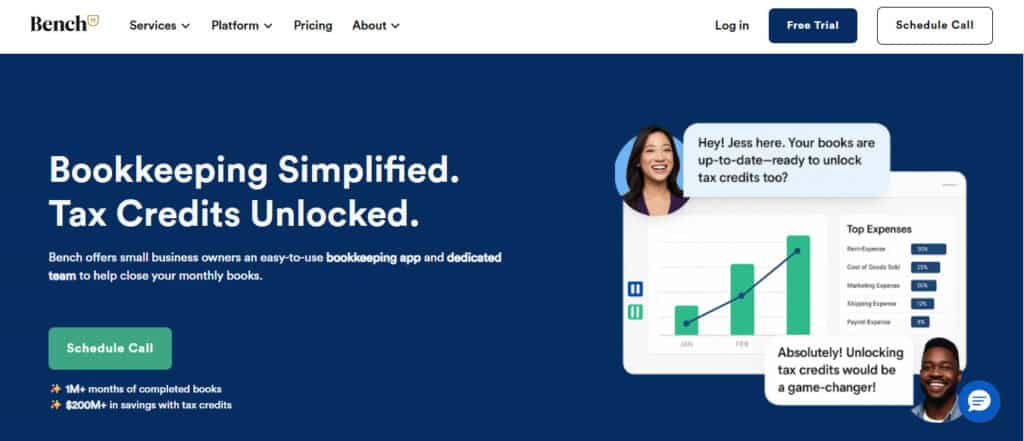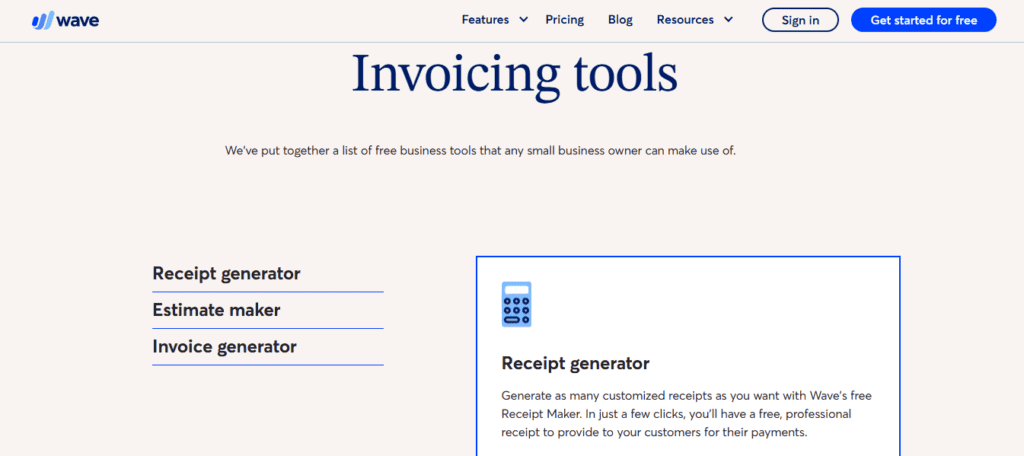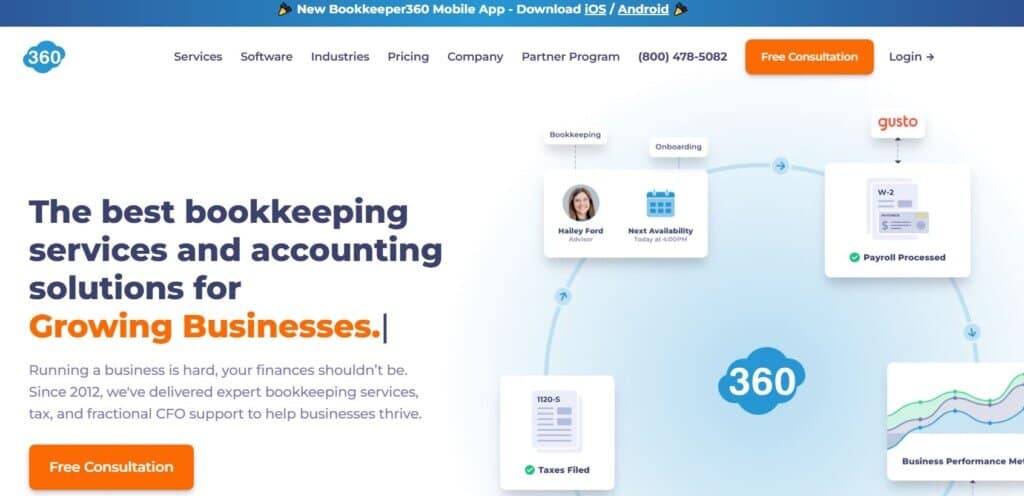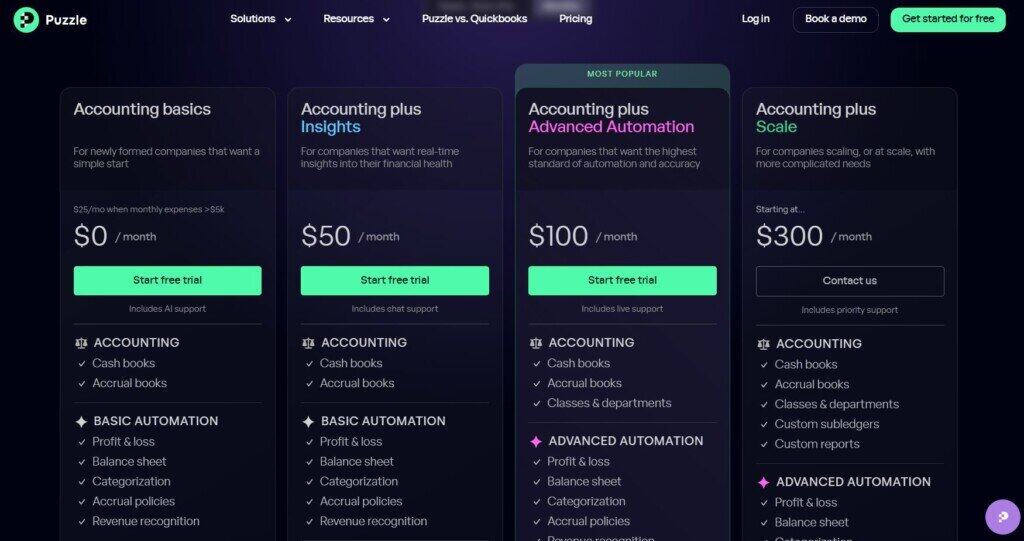Last Updated on August 29, 2025 by Ewen Finser
Over the years, I’ve worked with countless small businesses, startups, and growing companies. I’ve been asked about Pilot, because management wants to be hands off and has absolute disdain for maintaining their own books. In my opinion, Pilot is just the bookkeeping service that pairs software with outsourced accountants. It’s carved out a strong reputation, especially among startups that want a “set it and forget it” option for their books and it works.
But Pilot isn’t the only choice. In fact, depending on a company’s goals, size, or growth stage, there are several other platforms worth serious consideration. Some lean heavily into automation and transparency, while others focus on hands-off service.
The Bottom Line, Up Front
Pilot is a solid bookkeeping option, but it’s not the only game in town. For smaller businesses, Wave may be enough. As always, Intuit’s QBO provides a familiar path. Venture-backed startups might prefer Kruze or inDinero, while Xero with partner firms offers global flexibility. But for companies that want long-term scalability, transparency, and real-time access to financial data, Puzzle stands out as the most future-proof alternative subtly edging ahead of Pilot without sacrificing balance.
1. Puzzle.io

Puzzle has been gaining momentum, and I can see why. Unlike Pilot, which is primarily a service layered on software, Puzzle is a platform-first solution. It pulls in data directly from banks, payment processors, and other systems, then structures it into clean, audit-ready financials.
What stands out to me as a CPA:
- Transparency: You can drill down from financial statements into the original transaction.
- Speed: Automation shortens close cycles and reduces manual back-and-forth.
- Scalability: As companies add entities, accounts, or currencies, the platform handles complexity without ballooning costs.
Puzzle isn’t trying to replace the role of accountants, it’s merely building infrastructure that makes accounting more reliable and easier to collaborate on. For teams that want clarity and control, this is an edge worth noting.
2. Bench

Bench takes a different approach by combining proprietary software with a team of bookkeepers. It’s very similar to Pilot. It’s designed for small businesses that want simplicity above all else.
- Strengths: Clean interface, affordable plans, and bundled year-end tax packages.
- Limitations: Less flexible for complex businesses. If you outgrow the template, you’ll need to move elsewhere.
In my experience, Bench works best for sole proprietors or very small LLCs who just need compliant books and tax filings without much customization.
3. QuickBooks Live

QuickBooks has long been the household name in small business accounting. Their “Live” service adds access to bookkeepers who manage your QuickBooks account for you.
- Strengths: Direct integration with QuickBooks, large support ecosystem, familiar to most accountants.
- Limitations: The service still leans on QuickBooks’ interface, and support quality can vary depending on which bookkeeper you’re paired with.
For businesses already using QuickBooks, this option provides a way to offload bookkeeping without leaving the platform.
4. Xero + Partner Firms

Xero is another widely used accounting system, especially outside the U.S. What makes it compelling is the ecosystem of partner bookkeeping firms that specialize in Xero.
- Strengths: Cloud-native, intuitive interface, and global support.
- Limitations: On its own, Xero is just software. You’ll still need to find and manage a bookkeeping partner if you want a service layer.
I’ve seen Xero work well for companies with international operations or those that want more flexibility in building their finance stack.
5. Wave Advisors

Wave offers free accounting software, but they also provide paid “Advisors” for bookkeeping and support.
- Strengths: Low-cost entry point, simple setup, attractive for freelancers and very small businesses.
- Limitations: Not built for scaling; limited features compared to more robust systems.
For companies just starting out, Wave can serve as a stepping stone before upgrading to a more advanced platform.
6. Bookkeeper360

Bookkeeper360 integrates closely with both Xero and QuickBooks, offering outsourced bookkeeping with advisory add-ons like CFO services and payroll.
- Strengths: Flexible service tiers, technology-forward approach, advisory options.
- Limitations: Pricing climbs as services expand, and the platform can feel more like a traditional firm wrapped in modern branding.
I view Bookkeeper360 as a strong middle ground for businesses that want outsourced bookkeeping but also need occasional higher-level finance support.
7. inDinero

inDinero is one of the earlier “tech-enabled accounting firms” and offers bookkeeping, tax, and fractional CFO services.
- Strengths: All-in-one solution with bundled compliance and advisory.
- Limitations: Pricing is opaque, and it’s geared toward companies ready to pay a premium for bundled services.
For startups looking for a one-stop shop, inDinero can be appealing, though not always the most cost-efficient.
8. Kruze Consulting

Kruze specializes in startups, particularly venture-backed companies. They offer bookkeeping, tax, and CFO support, with a reputation for being founder-friendly and knowledgeable about investor expectations.
- Strengths: Startup focus, fundraising-ready financials, industry expertise.
- Limitations: Pricing reflects their niche, they’re best suited for companies on a venture track.
Kruze is a bit out of my wheel house as they’re a bit more niche, but my research indicates that they’re a viable option at a premium price. They specialize in tech firms, in what looks to be primarily the Silicon Valley market area.
Comparing the Alternatives to Pilot
To make sense of these choices, it helps to group them:
- Platform-first (Puzzle, Xero, Wave): Best if you want a durable system you or your CPA can build on.
- Service-first (Bench, Pilot, Kruze, inDinero, Bookkeeper360): Best if you want to outsource the work and minimize involvement.
- Hybrid (QuickBooks Live): Useful if you’re already in the QuickBooks ecosystem and want a halfway option.
From where I sit, the real question is whether you want to rent a bookkeeping service or own a financial system. That distinction shapes which alternative will serve you best.
Tradeoffs to Consider
When evaluating bookkeeping solutions, it’s easy to focus only on features or pricing. But after years of reviewing books for clients, I’ve noticed the real challenges often come from the tradeoffs you make when choosing a platform.
1. Control vs. Convenience
- Service-heavy options like Pilot, Bench, and Kruze maximize convenience. You hand off responsibility, and their teams deliver reports on schedule. The tradeoff is that you lose some control and that you’re dependent on their staff’s timelines and accuracy.
- Platform-first options like Puzzle and Xero maximize control. You or your finance team can access and manipulate data directly. The tradeoff is that you’ll need someone comfortable engaging with the system.
2. Cost Now vs. Cost Later
- Many founders gravitate toward Pilot or Bench because the upfront cost feels reasonable. But those costs can rapidly balloon as transaction volume rises or complexity increases.
- With Puzzle, Xero, or Wave, the cost model is more tied to software pricing. That often scales more smoothly, but it does assume you’ll bring in an advisor (internal or external) to interpret the data.

3. Generalist vs. Specialist
- Firms like Kruze or inDinero provide startup-specific guidance, which is valuable during fundraising or tax season. But you pay a premium for that expertise.
- Broader tools like QuickBooks or Wave don’t provide industry-specific knowledge. They’re flexible, but the burden is on you to adapt them to your situation.
Which Alternatives to Pilot Fits Which Type of Business?
Over time, I’ve noticed patterns in which companies gravitate toward each option.
- Puzzle: Growth-minded startups that want a foundation for long-term finance. Works well for companies planning to scale teams, add investors, or prepare for audits.
- Bench: Sole proprietors, freelancers, and small shops that just need clean books and taxes handled.
- QuickBooks Live: Small businesses that are already comfortable in QuickBooks but want less manual work.
- Xero + Partners: Businesses with international operations or those that want flexibility in building their finance stack.
- Wave Advisors: Very early-stage businesses testing the waters with professional bookkeeping at minimal cost.
- Bookkeeper360: Companies ready to outsource but still wanting flexible advisory options.
- inDinero: Mid-sized businesses looking for a bundled package of compliance and strategy.
- Kruze Consulting: Venture-backed startups that need polished financials for investors and complex reporting.
This is why I push back when clients ask me for “the best” solution. There isn’t one universal answer. It depends on goals, budget, and how much control you want over your financial system.
Pricing Models in Detail
Pricing is often the make-or-break factor when companies choose between bookkeeping providers. I’ve reviewed dozens of subscription models, and I’ve learned that the sticker price doesn’t always tell the full story.
- Pilot: Pilot charges based on transaction volume and service tier. At the lower end, you get bookkeeping and financial statements. As you move up, you can add tax preparation and CFO services. The catch is that your bill often rises in step with your growth. That can feel frustrating when the workload doesn’t increase at the same pace as revenue.
- Puzzle: Puzzle charges for the platform itself, not by how many hours a bookkeeper spends on your account. This makes pricing more predictable as you grow. You may still want a CPA or advisor to interpret the data, but the cost of the system itself doesn’t balloon every time your bank statement gets longer.
- Bench: Flat monthly pricing, attractive for freelancers or very small businesses. But once your needs go beyond tax compliance, you’ll quickly outgrow it.
- QuickBooks Live: Priced by tiers tied to business size. Convenient if you’re already a QuickBooks user, but adds another subscription on top of the base software. I’m also skeptical of the skill level of their “experts” for more complex businesses.
- Xero + Partners: Xero’s subscription is affordable, but partner bookkeeping services vary widely in price. This can be either a benefit (flexibility) or a drawback (uncertainty).
- Wave Advisors: Very low-cost entry point. That’s a positive for early businesses, but not sustainable for companies with significant growth ambitions.
- Bookkeeper360: Priced by service bundles, with options to add payroll, tax, and CFO advisory. Flexible but can become expensive if you need multiple services.
- inDinero: Pricing is less transparent and usually customized. In my experience, this is a premium option designed for companies that can afford a full package.
- Kruze Consulting: Priced at a premium, reflecting its niche focus on venture-backed startups.
From my CPA point of view, the real question isn’t “Which is cheapest?” but “Which scales best with your business?” Puzzle’s model tends to hold up better over time because it’s software-driven, not headcount-driven.
Integrations: How Data Flows
The strength of any accounting solution lies in how well it handles data.
- Pilot: Integrates with major banks and payment providers, but primarily as inputs for their bookkeepers to process. You see the cleaned financials, not always the integration / data itself.
- Puzzle: Built to ingest raw financial data directly, structuring it for both financial statements and deeper analysis. This “data-first” approach means the platform can handle scale without relying on human cleanup.
- Bench: Limited integrations. You send data, and Bench categorizes it for you. Works fine for simple setups, but breaks down with complexity.
- QuickBooks Live: Integrates fully with the QuickBooks ecosystem, which is vast. This can be a benefit if you’re already entrenched, but overwhelming if you’re not.
- Xero: Offers strong integrations through its global app marketplace. Pairing with the right partner firm unlocks flexibility.
- Wave: Integrates with basic payment and banking tools but lacks the depth of larger platforms.
- Bookkeeper360: Strong integrations with both Xero and QuickBooks, plus additional third-party apps.
- inDinero & Kruze: These are service-first providers; integrations are largely managed internally rather than exposed to the user.
For companies thinking about growth, integrations matter because they determine how quickly your books can adapt to new systems. Puzzle stands out here as it was designed for modern finance stacks where no two businesses use the same set of tools.
Reporting Differences
Reports are where the rubber meets the road. Founders don’t just need numbers, they need to know what those numbers mean and how they’re compiled into useful data.
- Pilot: Delivers standard monthly financial statements: balance sheet, income statement, cash flow. Useful, but often static PDFs or dashboards with limited drill-down capability.
- Puzzle: Goes beyond static reports. You can drill from summary lines into transactions, slice data by department or project, and export structured reports for modeling. This transparency makes Puzzle better for decision-making.
- Bench: Offers clean, simple reports with visuals that non-accountants can understand. But they’re geared toward compliance, not deep analysis.
- QuickBooks Live: Provides whatever QuickBooks can generate, which is extensive, though sometimes clunky.
- Xero: Known for clean reporting and the ability to customize layouts. With the right add-ons, it becomes a versatile reporting hub.
- Wave: Limited reporting capabilities, suited only for the smallest businesses.
- Bookkeeper360: Goes further than compliance, offering performance dashboards and cash flow forecasting.
- inDinero: Custom reporting is possible, but you’re dependent on their team to deliver it.
- Kruze: Reports are tailored for startups, including investor-ready decks and metrics.
As someone who’s had to sit in front of owners and explain variances, I can’t stress enough how important it is to have traceable, transparent data. Puzzle delivers here in a way that static reports simply don’t.
Final Recommendations
If you’ve made it this far, you’ve probably realized there’s no single “best” alternative to Pilot. Each option has strengths and weaknesses, and the right choice depends on your company’s size, complexity, and goals.
- If you’re a freelancer or sole proprietor, start with Bench or Wave Advisors. It’s low-cost and simple.
- If you’re a small but growing business, consider QuickBooks Live or Bookkeeper360 as they balance service with scalability.
- If you’re a venture-backed startup, Kruze Consulting or inDinero may be worth the premium for investor-ready reports.
- If you’re a globally minded business, Xero + partners gives flexibility with international reach.
- And if you’re a growth-focused company that values transparency, speed, and scalability, Puzzle deserves serious consideration.
From my perspective as a CPA, Puzzle edges out the others not because Pilot and its peers are irrelevant, but because Puzzle sets companies up with a system that grows with them. In a world where data is the backbone of every strategic decision, that kind of infrastructure matters more than ever.

